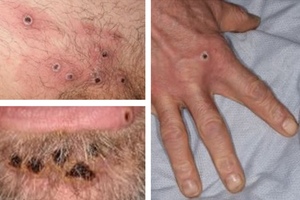The British High Commissioner, Jane Marriott, and Cabinet Secretary for the Ministry of Interior and Coordination of National Government, Dr Fred Matiang’i opened the first Anti-Terrorism Police Unit (ATPU) Coast Regional Headquarters and Mombasa Police Station, worth KES81 million.
The police station will provide a dedicated space for the ATPU to work on terrorism cases. It will also allow direct access to the ATPU for the public, creating more awareness about the ATPU’s work and strengthening their relationship with the local community.
Human rights compliance and international standards such as the Mandela Rules have been at the heart of the building’s design. The station includes a secure detention facility with separate cells and private ablution amenities for men, women and children. It is a testament to the UK and Kenya’s shared commitment to the rule of law and international human rights.
The British High Commissioner to Kenya, Jane Marriott, said:
Kenya is the UK’s premier security partner in East Africa. A primary focus of this partnership is to strengthen counter-terrorist capacity within the criminal justice system, in line with international human rights standards. The UK works with stakeholders across the criminal justice pathway, including investigators, detention supervisors, prosecutors and judiciary, all of whom are key to preventing and disrupting terrorist activity.
Terrorism is one of the biggest threats facing our countries. To counter this threat, I am delighted to support Kenya with approximately KES 1bn [£7m] a year.
Cabinet Secretary for the Ministry of Interior Dr Fred Matiang’i said:
As a Government, we applaud the UK-Kenya Security Compact agreed in 2018 and the incorporation of the UK Kenya Strategic Partnership 2020 – 2025, through which the British High Commission has worked with the Government of Kenya to establish this modern, purpose-built police station with detention facilities for ATPU Coast in Mombasa.
With the assistance of our partners, we have steadily grown our capabilities to confront terrorism and other transnational crimes. We are immensely grateful to the people of the United Kingdom, through the British High Commission (Nairobi), for our continued warm and cordial working relationship and particularly on Counter Terrorism.
The building has state of the art rooms including, storage areas, conference room, IT room, server area, armoury, CCTV room, 9 holding cells for male, female, and juvenile all fitted with fixed beds, modern toilet and adequate ventilation.
Over the last year, the UK has supported the ATPU with various activities including trainings on terrorist financing, witness interviews, IEDs, gender sensitivity as well as the delivery of an internationally accredited Training of Trainers programme. Going forward, we are pleased to continue specialist skills training support in this building.
The building has dedicated spaces for different ATPU teams – investigations, evidence analysis and forensics – enabling them to work together under one roof. It also has a multi-agency room for the ATPU to invite in and to work closely with other national security bodies and international partners in a secure environment. A training room is also available to facilitate the ATPU to embed key skills across their personnel.
- As our closest partner on counter terrorism in East Africa, the UK stands with Kenya in our joint fight against terrorism. The UK invests approximately KES1.1 billion (£7 million) a year to support Kenya’s Counterterrorism (CT) efforts
- The UK’s CT support to Kenya is wide-ranging.
- We work closely with the Ministry of Interior to build the capacity of criminal justice institutions through training and mentoring, and by reinforcing Kenya’s CT infrastructure – such as through the establishment of Kahawa Law Court, Kenya’s first court dedicated to addressing terrorism offences
- In February 2022, the British High Commissioner handed over critical forensic medical equipment to the Chief Administration Secretary, in the Ministry of Health, Dr Rashid Aman to improve disaster response and support forensic investigations
- Counter terrorism requires not only a strong security response, but also a holistic preventative effort that incorporates political, diplomatic and development approaches. Recently, we have worked to reduce the vulnerability to radicalisation of 800 at-risk Kenyans through engagement with communities and civil society organisations
- The UK also supports improvements in aviation and maritime security standards through technical assistance to the Ministry of Transport and Port Authorities

